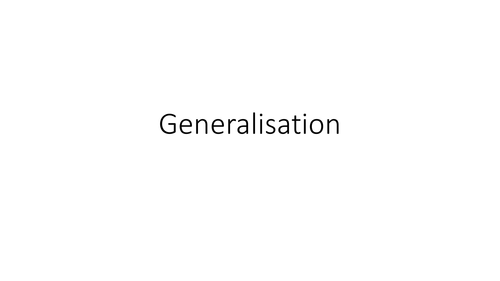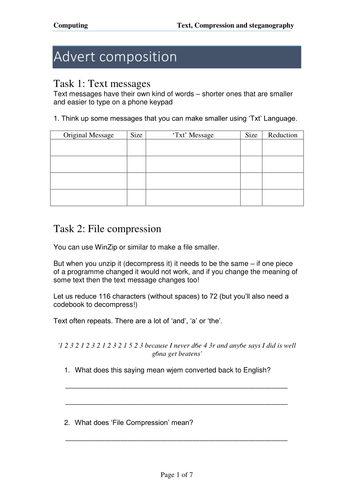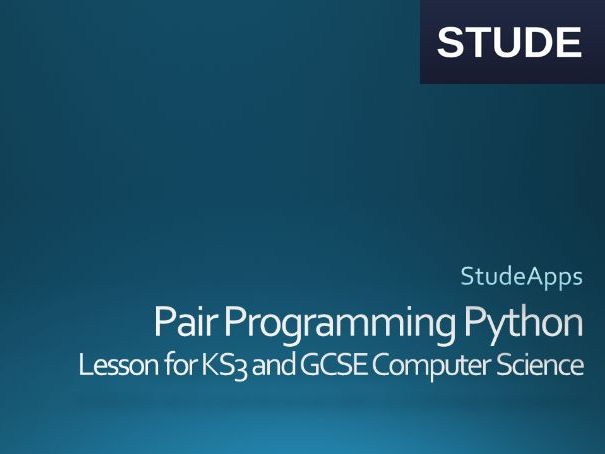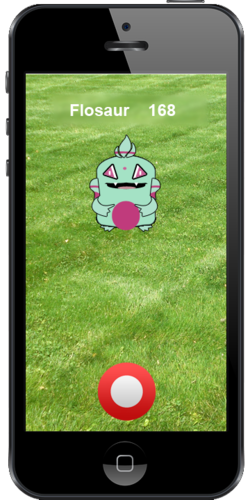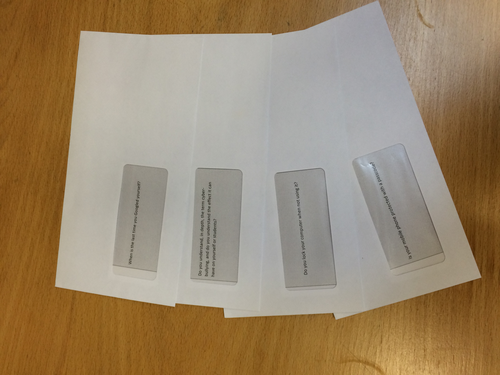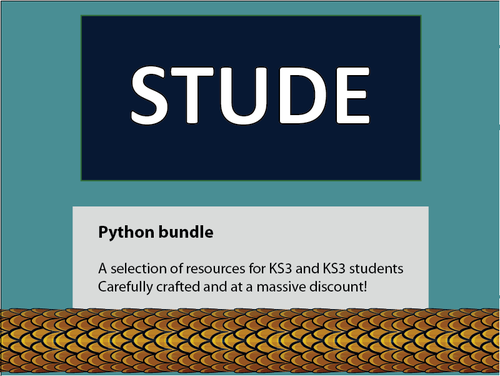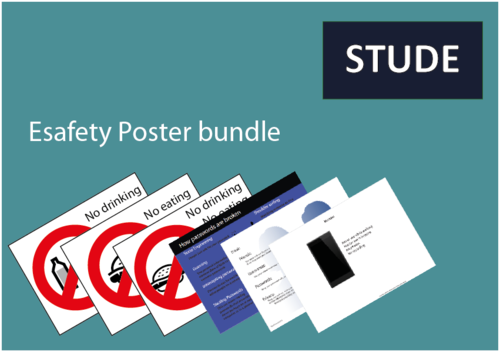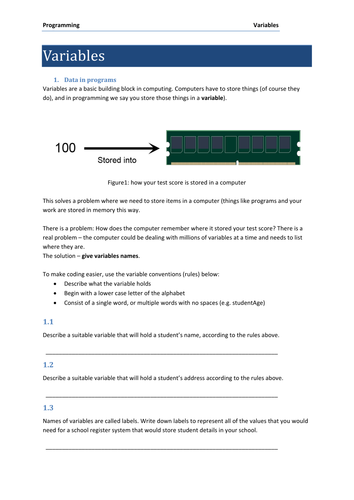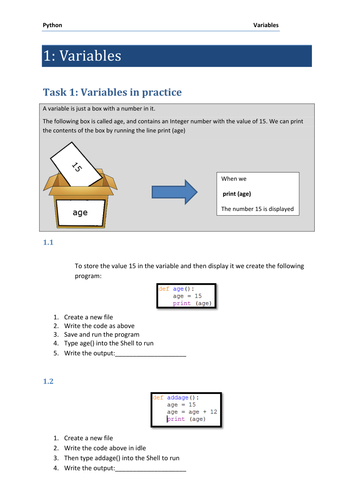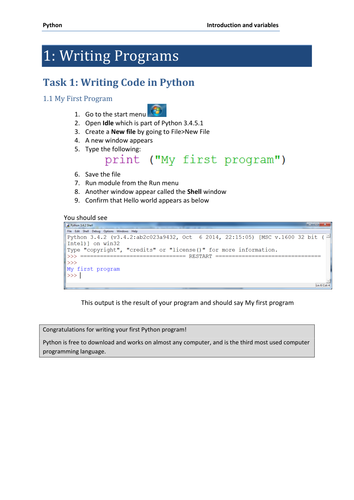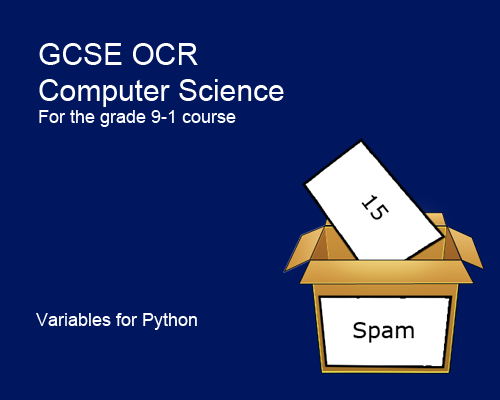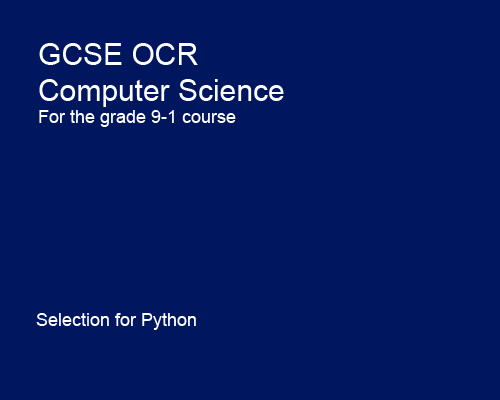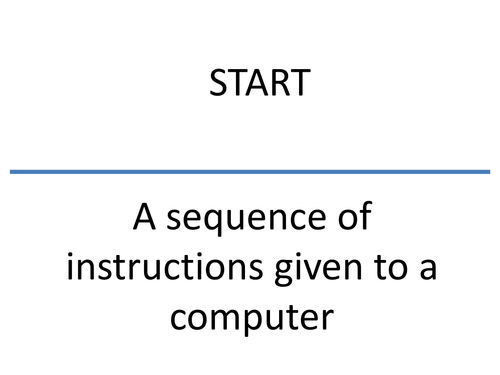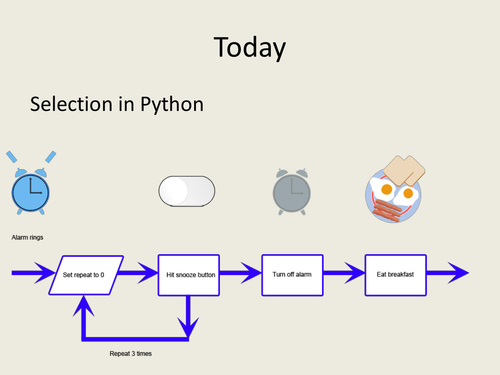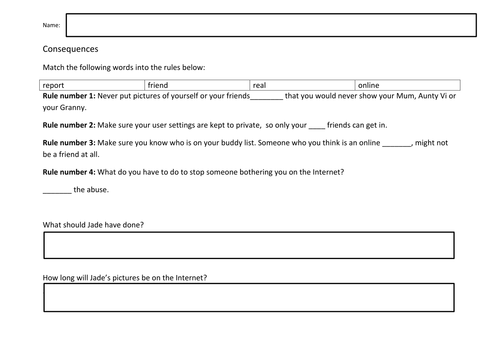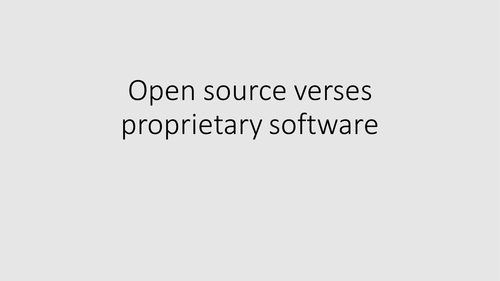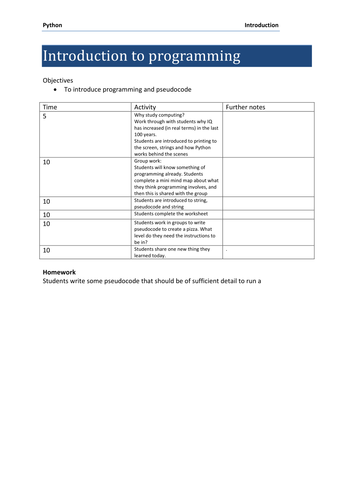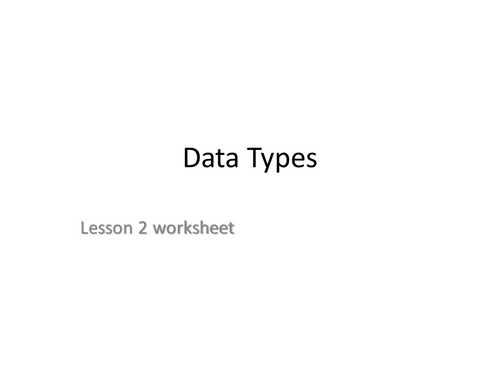
545Uploads
256k+Views
83k+Downloads
Computing

Generalisation lesson Computing (late KS3 or GCSE)
Full lesson to explain generalisation to your students
Learning objectives:
To understand that patterns are important using algorithms
To know that generalisation helps us to create programs
This is taught by tic-tac-toe and counting rectangles. An enjoyable lesson for the students.

Compression (Text Messages) for Computing (KS3 / GCSE)
An innovative computing worksheet.
Teaches about compression and text messages.
Developed for computing KS3 and GCSE. Moves onto Steganography.

Python Pair Programming activity for AQA GCSE Computer Science
Python Pair Programming activity for AQA GCSE Computer Science
Based around the game "rock paper scissors", and students develop solutions in pairs, share their results and criteria against the exam board requirements.
This lesson can also be run with a high ability Key stage 3 group.
Bundle

Learning ICT and Computing with Pokemon
Resources that can really bring learning to life, based around the Pokemon franchise.

eSafety discussion task
eSafety discussion task.
Each comment has a surprising addition.
To use this use envelopes with a clear window (as in the images Envelopes.jpg and Envelopessecond.jpg show).
Students then follow the following instructions.
We are going to order the questions in the envelopes from most to least important.
Leave them in their envelopes for now
1. Do you think the question is relevant (in turn)
2. Why do you think that your question might be regarded as important (in turn)
3. Order
4. Remove from envelopes to see additional information. Does this change your mind?

Binary lesson for computing KS3
Full lesson includes poster and activities including starter and worksheet

Variables theory for GCSE Computer Science
Teach students about variables. They study assignments and make sure that the variables are printed to the screen, using a variety of paradigms.
This resource is not based on any particular programming language, so is applicable for any particular language you choose.

Variables practical for GCSE Computer Science using Python
Teaches students about variables. They study assignment and make sure that the variables are printed to the screen, using a variety of paradigms.
This resource uses Python version 3.4

Introduction to programming practical for GCSE Computer Science using Python
Introduction to programming using Python (3.4)
Suitable for GCSE level students includes worksheet tasks and homework.
This lesson covers sequence, operators and output.
Bundle

Variables - GCSE Computer Science OCR 9-1 Programming with Python
A complete bundle for OCR 9-1 teaching variables with Python. Has both theory and practical lessons; could be spread over one, two or three lessons as suitable for your context.
Bundle

Selection - GCSE Computer Science OCR 9-1 Programming with Python
A complete bundle for OCR 9-1, introducing selection in Python.
Has both theory and practical lessons; could be spread over two, three or
four lessons as suitable for your context.

Selection practical for GCSE Computer Science using Python
Teaches students about selection. The full lesson includes booklet and homework.
This resource uses Python version 3.4

Selection theory for GCSE Computer Science
Teaches students about selection. The full lesson includes booklet and homework.
This resource is not based on any particular programming language, so is applicable for any particular language you choose.

Dangers of Social media for KS3
Full lesson including lesson plan for the dangers of social media (KS3).
Fixed problem with first video.

Mario Run: Dangers of mobiles lesson
Two lessons:
Brainstorming
Research
Suitable for both KS3 and KS4

Open Source Vs Proprietary Software lesson for GCSE Computer Science
Presentation and worksheet designed for GCSE Computer Science

Introduction to programming theory for GCSE Computer Science
Teach students about programming . They study basic strings and how computers store and manipulate data.
This resource is not based on any particular programming language, so is applicable for any particular language you choose.

Data types practical for GCSE Computer Science using Python
Teaches students about data types including integer, boolean, float and casting.
The full lesson includes booklet and homework.
Practical session based around a 60 minute lesson.
This resource uses Python version 3.x

